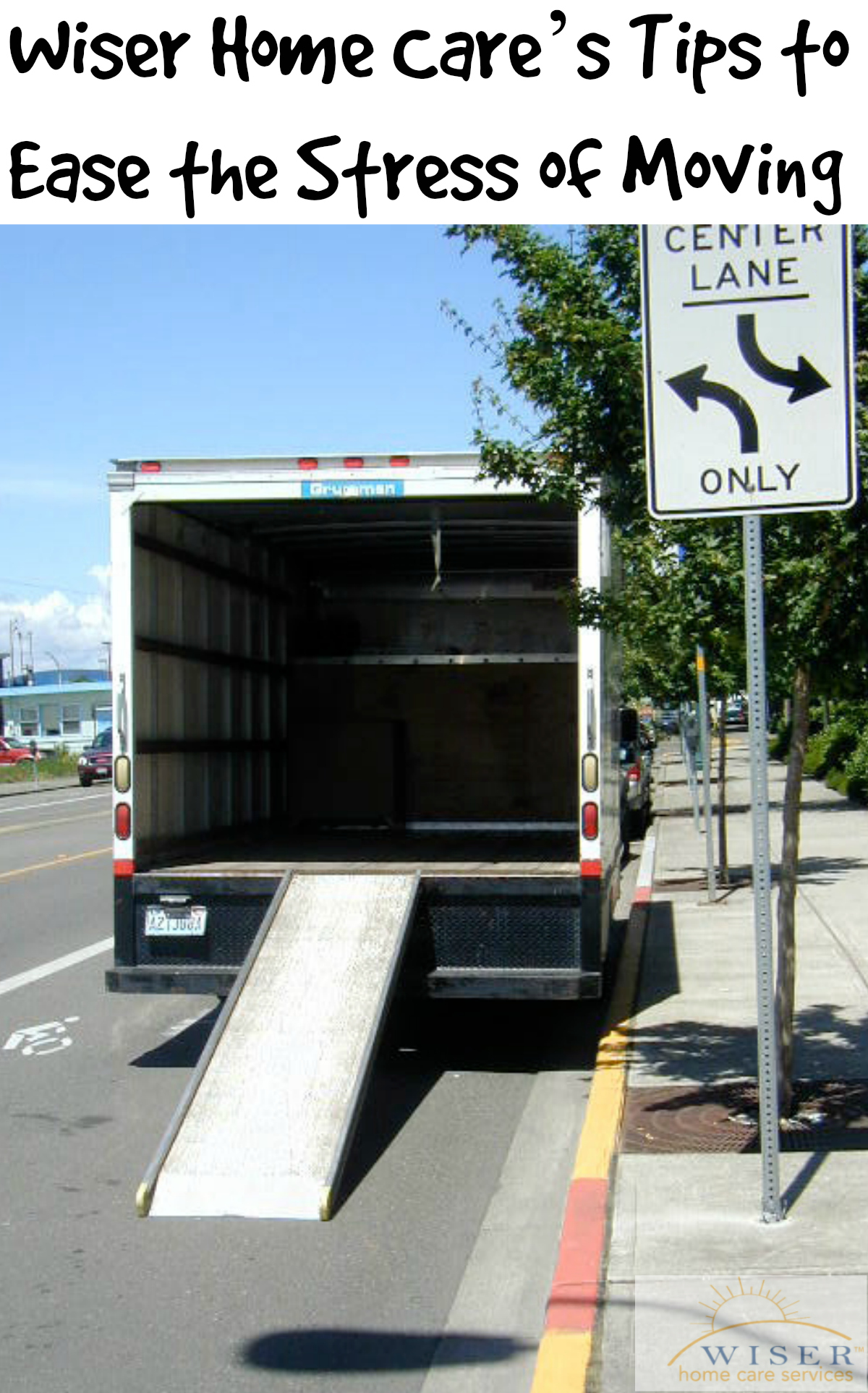Taking care of an elderly loved one can easily and quickly become very stressful, especially if the loved one suffers from a debilitating disease such as Alzheimer’s. Often there comes a point when it is no longer safe for the elderly loved one to be at home and watched over by family. At this point it is crucial to consider what’s best for the elder even if it means moving them out of the comfort of their home.
Here at Wiser Home Care Services we understand that this time of transition and uncertainty can be very stressful to navigate.
Tips to Ease the Stress of Moving
We have compiled a list of tips for when you are faced with the decision to move your loved one.
- Go with your gut. Families are often unsure how far in advance they should discuss the move into a facility with their loved one. Those who are closest to the person with Alzheimer’s usually have the best sense as to how the individual will handle the news. The amount of information shared, and the timing of the information given, will depend on the ability of the person with Alzheimer’s to understand. Some families involve their loved one early in the process and ask for their input, other families, with a loved one in the more advanced stages of the disease, find it best to tell them the day before or the morning of the move. Even those in the later stages, however, have a right to be told where they are going and why (because family/friends can no longer keep them safe at home).
-
Consider sooner rather than later.
People with a progressive memory loss are usually able to better adjust if they are moved early in their disease process. Because moving from the comfort and security of one’s home requires a great deal of adjustment, physically and emotionally, people with Alzheimer’s and similar dementias are most likely to adjust more effectively before the disease has become too advanced.
-
Bring as many meaningful objects from the resident’s home as possible.
Rooms that are set up to look as much like the resident’s home as possible will ease the transition. Having objects around them that have sentimental value to them will help them feel less alone. Also, people with Alzheimer’s are dependent on the environment around them to provide cues; having familiar objects in their room will help them function better.
-
Make moving day as stress-free as possible.
Ensure that one or two of the resident’s most trusted family members or friends are with the resident on moving day. In most cases, it is best to have the personal belongings moved out of the old home and into the new home when the resident is not there; have the trusted person(s) take the resident out for a quiet breakfast or for a drive in the country while the work is being done. Watching one’s treasured possessions moved can be very stressful.
-
Expect a period of adjustment.
It’s not uncommon for it to take 30 to 90 days for older adults to adjust to their new surroundings; those with Alzheimer’s may take even longer. Everything is different, from the faces around them, to the new schedule of daily routines, to the food that’s served, even the new smells of the facility. A period of adjustment does not mean you’ve made a mistake. Be patient.
-
Respond to their emotion.
As Alzheimer’s disease progresses, the individual goes more on emotion than logic (due to the death of brain cells). Therefore, those around them need to respond to the emotions behind their words and actions. By validating the emotions, such as, “It sounds like you’re angry,” or “You look sad,” you acknowledge their feelings. Provide plenty of reassurance such as, “I’ll visit you often,” or “I’m getting you a phone so we can talk every night before bed.”
-
Acknowledge their grief.
As a person ages they experience a great deal of loss; they gradually lose their independence, their health, their abilities to do certain things, etc. These compounding losses often lead to a grieving process. When that person has Alzheimer’s disease that grief may be intensified. This is because they are also losing their memories and, in stages, their abilities to function. Recognize their need to vent their grief and acknowledge their feelings. After a period of time listening, provide a divisional activity such as a short walk or a snack.
-
Provide opportunities to reminisce.
Reminiscing is one of best things you can do with a person with middle to later stage Alzheimer’s; their short-term memory is failing but the long-term memory can remain intact for a long time. Provide old family photos or photo albums, ideally with identifying names on them. They can use them to reminisce with others. It is suggested that original photos are left at home and copies are brought to the facility. This prevents the originals from getting ruined or lost. You may have heard the same story 101 times; smile and act as if it’s the first time you’ve heard it. Just think of the joy it brings them!
-
Help the staff know your loved one.
If your loved one has limited abilities to share his/her preferences and past patterns with staff, ask the staff what information they need to help your loved one have the best experience possible in their new home. Also, think of ways to honor and communicate with others your loved one’s past accomplishments and talents. In doing so, you’ll contribute to improved self-esteem of the individual with Alzheimer’s – something that really takes a hit as they lose their abilities.
-
Continue to play a role in the care giving process.
Just because your loved is in the care of the facility, it doesn’t mean they don’t need you. You can continue to play a vital role in the wellbeing of your loved one. Visit regularly; attend care conferences and other staff meetings related to your loved one, and advocate for him/her as you feel it is necessary.
Wiser Home Care Services Can Help
If you still have questions and concerns about moving your loved one please feel free to contact us and we can help you and your family navigate this time of transition.
Wiser Home Care: Care for the ones you love!


